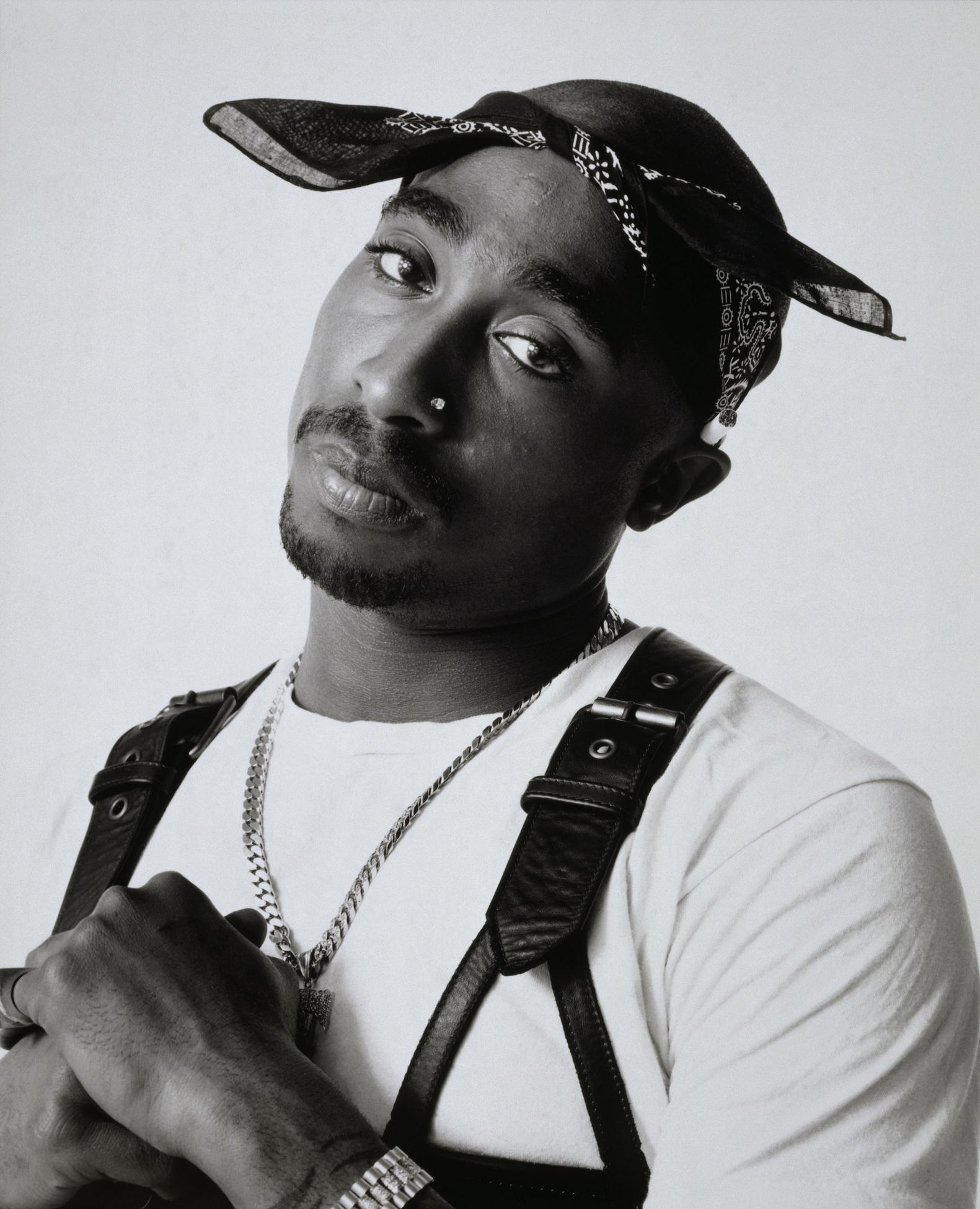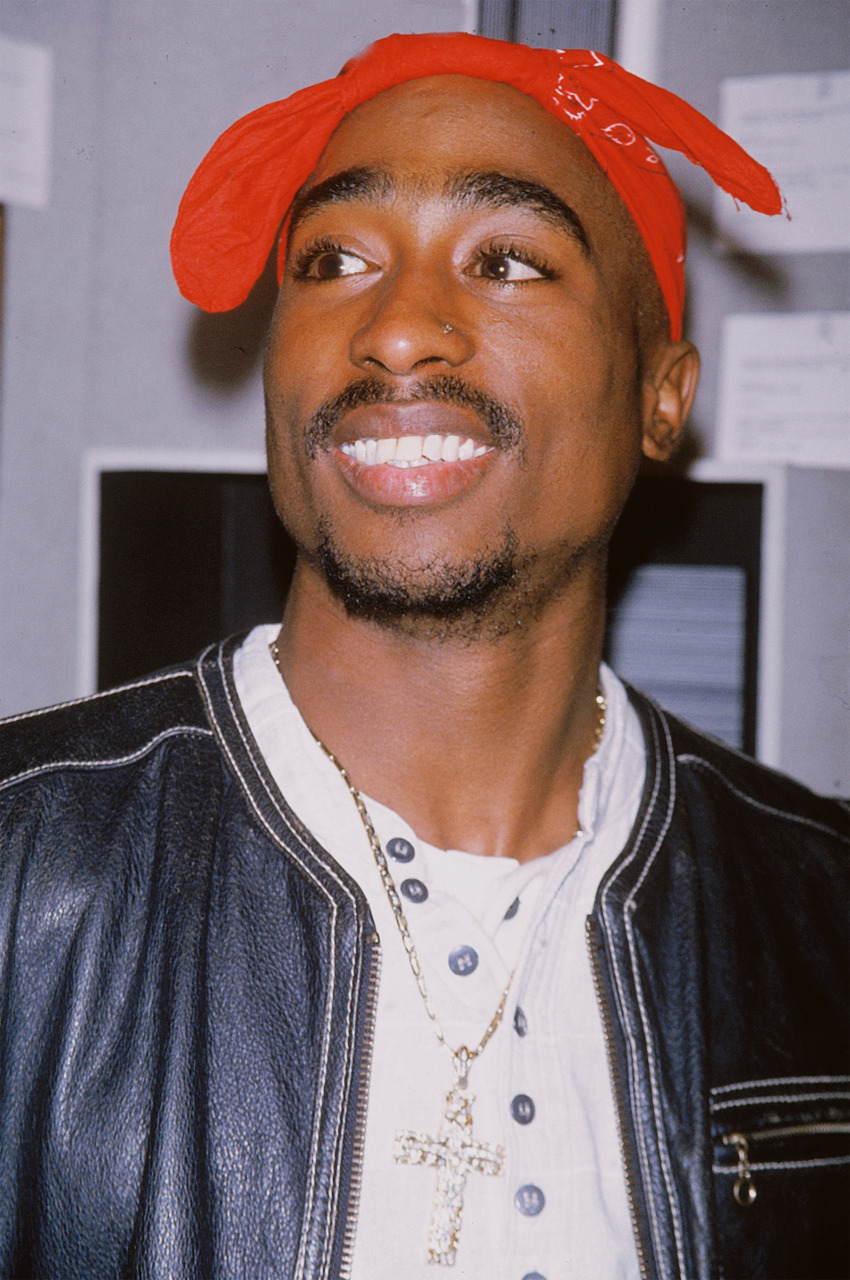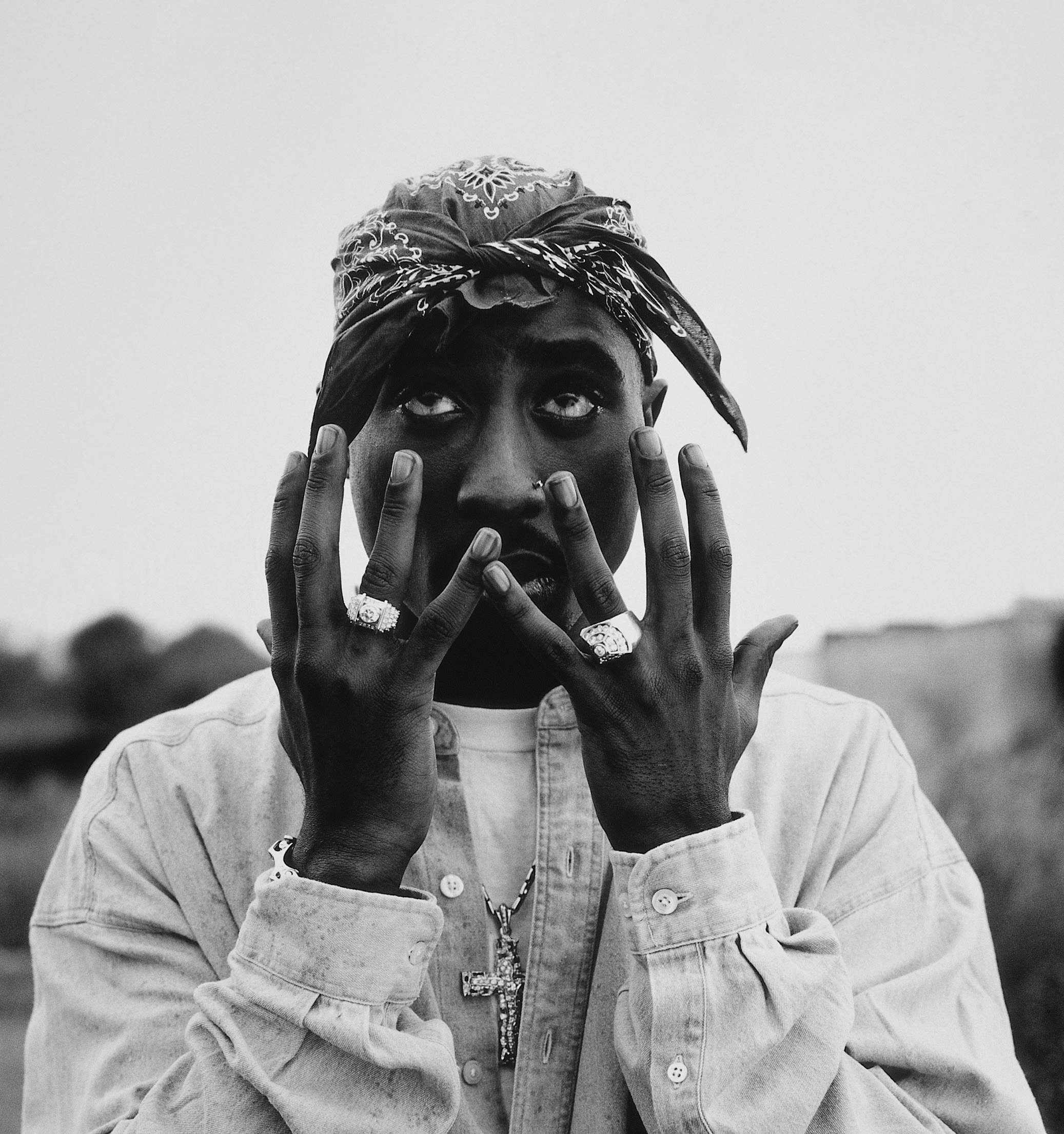There are certain figures in popular culture whose presence feels, in a way, like it just keeps growing, even after they've left us. Tupac Shakur is, very much, one of those individuals. His voice, his words, and his performances continue to speak to new generations, holding a special place in the hearts of many. You know, his impact stretched far beyond music, reaching into films and leaving quite a mark there too.
Among his acting credits, one picture really stands out for a lot of folks: "Poetic Justice." This movie gave us a chance to see a different side of Tupac, showcasing his acting talents alongside a music icon, Janet Jackson. It's a film that, in some respects, explores themes of grief, connection, and finding your way forward, all set against the backdrop of a road trip. It’s pretty much a story that touches on the human spirit.
In "Poetic Justice," Tupac took on the part of Lucky, a postal worker, someone who delivers messages and, perhaps, brings a sense of routine to people's lives. This character, the Poetic Justice mailman, became a memorable part of the movie's fabric, offering a grounded, yet complex, counterpoint to Janet Jackson's character, Justice. It's interesting how a simple job like that can become so central to a widely loved story, isn't it?
Table of Contents
- A Life that Left a Mark - Tupac Shakur's Story
- What Exactly is "Poetic Justice" and the Poetic Justice Mailman's Place in it?
- The Poetic Justice Mailman - Lucky's Story
- How Did Tupac's Portrayal of the Poetic Justice Mailman Resonate with Viewers?
- Beyond the Poetic Justice Mailman - Tupac's Broader Artistic Contributions
- Was the Poetic Justice Mailman Role a Turning Point for Tupac?
- What Lasting Impact Did the Poetic Justice Mailman Character Have?
- The Enduring Presence of the Poetic Justice Mailman and the Film
A Life that Left a Mark - Tupac Shakur's Story
Tupac Amaru Shakur, born in Brooklyn, New York, on June 16, 1971, was, you know, a person whose life, while short, made a truly significant impression. He grew up, mostly, in Harlem, a place that, arguably, shaped a lot of his early experiences. His parents, Billy Garland and Afeni Shakur, were both activists, and that background, naturally, gave him a unique perspective on the world around him. He later moved to Baltimore, Maryland, in 1984, where he formed a close bond with Jada Pinkett Smith, a friendship that, actually, continued through the years.
His journey as an artist began to take shape as he found his voice in music, becoming known by his stage name, 2Pac. He was, quite frankly, a very successful rapper and an actor who gained widespread recognition for his honest, sometimes challenging, lyrics. These words, in a way, connected deeply with many listeners, earning him a large base of dedicated followers. At the same time, his direct approach, too, could spark conversations and sometimes, you know, even controversy, which just added to his public presence.
Tupac's life came to an end on September 13, 1996, in Las Vegas, Nevada, after he was shot on September 7. His passing, in a way, left a huge void in the music and film communities. The circumstances around his death have, still, remained a puzzle, with no one ever being held responsible for the crime. This unresolved aspect of his story, basically, adds another layer to the lasting interest in his life and work, keeping his memory very much alive for people.
- Icn Transit Airport Fly Out
- I Think Theres Someone Hanging There
- Diddy Carl Wilson
- Kevin Nair Hair Removal Video Unblurred
- Huey Say Something Deep
| Full Name | Tupac Amaru Shakur |
| Stage Name | 2Pac |
| Born | June 16, 1971, Brooklyn, New York, U.S. |
| Died | September 13, 1996, Las Vegas, Nevada |
| Occupations | Rapper, Actor |
| Parents | Billy Garland, Afeni Shakur |
What Exactly is "Poetic Justice" and the Poetic Justice Mailman's Place in it?
"Poetic Justice," a film released in 1993, directed by John Singleton, is, in essence, a story that brings together two very different people on an unexpected trip. It stars Janet Jackson as Justice, a young woman who works as a hairdresser and is, you know, grieving the loss of someone important in her life. She expresses her feelings through poetry, which is, basically, a central part of her character. The movie, quite naturally, explores her emotional journey and how she tries to move forward.
The other main character, Lucky, played by Tupac Shakur, is, as you might guess, a postal worker. He's the Poetic Justice mailman, someone who, in a way, represents a different kind of life experience compared to Justice. Their paths cross when Justice faces some car trouble while on her way to a hair show in Oakland. This seemingly small event, basically, sets in motion a road trip that includes their lively best friends, leading to a series of encounters and conversations that shape their relationship. It's a rather simple premise that allows for a lot of character exploration.
The film, which opened on November 22, became, you know, a classic love story set against a backdrop of everyday life. It's a relationship drama that, in some respects, explores how people connect, even when they come from different places or have different ways of looking at things. The presence of Tupac Shakur in this movie is, of course, a big reason why many people remember it so well, especially given his passing just three years after its release. His role as the Poetic Justice mailman, you see, gave him a chance to show a different side of his acting abilities.
The Poetic Justice Mailman - Lucky's Story
Lucky, the character Tupac brings to life, is, in a way, more than just a person who delivers letters. He's a postal worker with his own feelings, his own past, and his own way of seeing the world. His interactions with Justice are, at times, a little bit tense, especially when he tries to flirt with her and she's not, perhaps, entirely receptive. This dynamic, you know, adds a layer of realism to their developing connection, showing how people often start off with misunderstandings before finding common ground.
The Poetic Justice mailman character is, basically, a grounded figure, someone who has a steady job and a routine. This contrasts with Justice's more artistic and emotionally expressive nature. Yet, despite their differences, they find a way to connect, to share parts of themselves, and to, in a way, help each other through their respective struggles. It's a pretty honest portrayal of how relationships can grow from unexpected beginnings, wouldn't you say?
The film shows us the world through the eyes of its main characters, and Lucky's perspective, you know, offers a look at the life of someone trying to make their way. He's not just a plot device; he's a person with feelings and motivations. His presence, basically, helps to balance the emotional weight of Justice's story, bringing a sense of practicality and, perhaps, a bit of everyday charm to the narrative. It's a testament to Tupac's acting that he made the Poetic Justice mailman feel so real and relatable to viewers.
How Did Tupac's Portrayal of the Poetic Justice Mailman Resonate with Viewers?
Tupac's acting in "Poetic Justice" really struck a chord with a lot of people. He brought a genuine quality to Lucky, the Poetic Justice mailman, making him feel like a person you might actually meet. His performance, you know, was often described as raw and honest, which, in a way, matched the intensity he brought to his music. Viewers could, basically, see a vulnerability in Lucky that perhaps they hadn't expected from Tupac, given his public persona as a powerful rapper.
The chemistry between Tupac and Janet Jackson was, you know, something many people talked about. They played off each other very well, creating a believable and, at times, quite funny dynamic. The scene where they have a humorous exchange, for instance, is often remembered by fans of the movie. This ability to connect with his co-star, basically, helped to make the relationship between Justice and the Poetic Justice mailman feel authentic and engaging for those watching.
His performance as Lucky, the Poetic Justice mailman, also showed that Tupac was, you know, more than just a musician; he was a talented actor who could handle different kinds of roles. He wasn't just playing himself; he was creating a character, someone distinct from his rapping identity. This versatility, in a way, impressed many critics and audiences alike, solidifying his position as a promising figure in film. It’s pretty clear that he had a knack for it, wouldn't you agree?
Beyond the Poetic Justice Mailman - Tupac's Broader Artistic Contributions
While his role as the Poetic Justice mailman is certainly a memorable part of his acting career, Tupac Shakur's artistic contributions went, you know, far beyond that single film. He was, first and foremost, a prolific and highly influential musician. His albums, filled with powerful lyrics and distinctive beats, captured the attention of millions. He had a unique way of telling stories through his songs, touching on social issues, personal struggles, and aspirations. His music, basically, spoke to the experiences of many people, particularly those from urban communities.
His discography includes several well-known records that, you know, continue to be played and studied today. He released multiple albums during his lifetime, and even more material came out after his passing, showing just how much he created. His lyrical style, in a way, was often direct and confrontational, but also thoughtful and poetic, which is, perhaps, why so many people connected with his words. He had a gift for putting feelings into rhyme, you know, that really stuck with you.
Beyond "Poetic Justice," Tupac also appeared in other films, further showing his range as an actor. These roles, in a way, allowed him to explore different characters and stories, proving that his talents extended beyond the music studio. He was, quite frankly, someone who seemed destined for a long career in both music and movies, given the impact he had in such a short time. His ability to move between these two creative outlets, basically, made him a truly multifaceted artist.
Was the Poetic Justice Mailman Role a Turning Point for Tupac?
It's fair to ask if playing the Poetic Justice mailman was, you know, a particularly significant moment in Tupac's career. For many, it showcased a softer, more romantic side of him, something that perhaps wasn't as prominent in his public rapping persona. This role, in a way, allowed audiences to see him as a leading man in a romantic drama, rather than just a tough, outspoken rapper. It was, basically, a chance for him to broaden his appeal and demonstrate a different kind of acting skill.
The film's success, and the positive reception to his performance, arguably, opened doors for him in Hollywood. It showed that he could carry a major movie alongside a superstar like Janet Jackson. This experience, in some respects, might have influenced his choices for future acting projects, encouraging him to explore more diverse roles. It's quite possible that, you know, it gave him more confidence in his abilities as a film performer.
While his music career was already very strong, the Poetic Justice mailman role, basically, solidified his presence in the film world. It gave him a widely recognized character that, you know, many people still associate with him. So, in a way, it was a turning point, not necessarily in terms of starting his career, but certainly in terms of showing the depth of his talent and expanding his artistic reach. It was a pretty big deal for him, honestly.
What Lasting Impact Did the Poetic Justice Mailman Character Have?
The character of Lucky, the Poetic Justice mailman, has, you know, left a lasting impression on many who watched the film. He represents a kind of grounded, everyday hero, someone who isn't flashy but possesses a deep sense of loyalty and a good heart. His interactions with Justice, in a way, highlight the idea that true connection can be found in unexpected places and with people who might initially seem very different from you. This message, basically, resonates with a lot of viewers.
Lucky also, you know, helped to break down some stereotypes that might have existed about young men from his background. He was a working professional, someone who was trying to do right, and his character showed a nuanced side that was, perhaps, not always portrayed in mainstream media at the time. This portrayal, in some respects, gave audiences a more complete picture of who people like Lucky could be, which is pretty important.
The Poetic Justice mailman character, too, is often remembered for his memorable lines and the way he carried himself. He brought a sense of authenticity to the role that, you know, made him feel real. His story, intertwined with Justice's, created a narrative that was both entertaining and, in a way, thought-provoking, leaving people with something to consider long after the credits rolled. It's clear that he became a beloved figure for many, and that's quite a feat for any character.
The Enduring Presence of the Poetic Justice Mailman and the Film
Even years after its release, "Poetic Justice" and the character of the Poetic Justice mailman continue to be, you know, a topic of conversation and appreciation. The film is often revisited by fans who grew up with it, and it finds new audiences who are just discovering Tupac's work. It's a picture that, in a way, feels timeless, touching on universal themes of love, loss, and self-discovery that remain relevant regardless of the era. People still talk about it, which is pretty cool.
The pairing of Tupac and Janet Jackson, too, created an iconic on-screen duo that, you know, many people simply can't separate. They are, in a way, always going to be Justice and Lucky in the minds of their fans. This strong association, basically, speaks to the power of their performances and the impact the film had. You see images of them together from the movie, and it instantly brings back memories for a lot of folks.
From wallpapers featuring the Poetic Justice mailman to discussions about the movie's influence, the film's presence is still felt across various platforms. It's a testament to the film's quality and, you know, the powerful performances by its lead actors, especially Tupac as Lucky. The story, the characters, and the overall feel of "Poetic Justice" have, in some respects, secured its place as a cherished piece of cinema, ensuring that the Poetic Justice mailman will be remembered for a very long time.
This article has explored the life and impact of Tupac Shakur, with a particular focus on his role as Lucky, the Poetic Justice mailman, in the film "Poetic Justice." We looked at his background, the details of the movie, how his portrayal resonated with audiences, and his broader artistic contributions beyond this specific role. The discussion also covered whether the Poetic Justice mailman character marked a significant point in his career and the lasting influence of both the character and the film itself.



Detail Author:
- Name : Aidan Orn III
- Username : viola.bartell
- Email : draynor@hotmail.com
- Birthdate : 1992-03-28
- Address : 3050 Stehr Plains Apt. 937 Lake Carolanneborough, MS 61902
- Phone : +17409167374
- Company : Bahringer, Conroy and Boyer
- Job : Hoist and Winch Operator
- Bio : Nesciunt saepe ut et qui assumenda magni consequatur quae. Libero nesciunt quo beatae labore aut. Alias ad consequatur explicabo voluptatem nemo. Hic non iusto rerum vero dignissimos maxime.
Socials
linkedin:
- url : https://linkedin.com/in/jenniemohr
- username : jenniemohr
- bio : Quam quidem et minima quod quas.
- followers : 5572
- following : 336
facebook:
- url : https://facebook.com/jennie_mohr
- username : jennie_mohr
- bio : Quidem nulla veritatis et quasi quidem.
- followers : 3708
- following : 1204
tiktok:
- url : https://tiktok.com/@jennie_official
- username : jennie_official
- bio : Eligendi ut tenetur et quo amet eligendi reprehenderit velit.
- followers : 681
- following : 1640
twitter:
- url : https://twitter.com/jenniemohr
- username : jenniemohr
- bio : Quia est praesentium quibusdam. Soluta nemo iste fugiat officiis voluptate voluptas. Officiis enim aut ea qui doloribus eveniet.
- followers : 4883
- following : 468